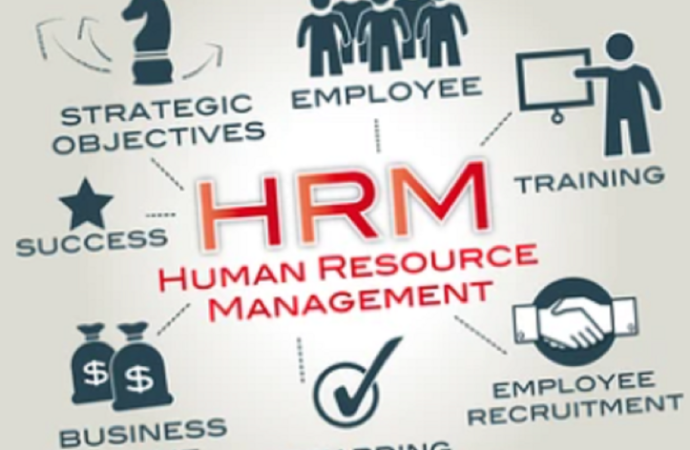Introduction Embarking on a journey within the educational landscape, one can’t help but acknowledge the profound impact of Human Resource Jobs in Education careers. Education stands as a beacon, illuminating the vital role HR professionals play in nurturing educational institutions worldwide. Let’s delve into the intricacies of this dynamic field, exploring its significance and the pathways
Introduction
Embarking on a journey within the educational landscape, one can’t help but acknowledge the profound impact of Human Resource Jobs in Education careers. Education stands as a beacon, illuminating the vital role HR professionals play in nurturing educational institutions worldwide. Let’s delve into the intricacies of this dynamic field, exploring its significance and the pathways it offers.
Importance of Human Resource Careers in Education
In the Human Resource Jobs in Education domain, HR professionals serve as architects of organizational success. They navigate the intricate balance between administrative efficiency and human-centric policies, fostering an environment conducive to learning and growth. Human resource management in education transcends traditional administrative functions. It encompasses talent acquisition, professional development, conflict resolution, and fostering a culture of diversity and inclusion.
Understanding Human Resource Careers

Image by: humanresourcesmba.net
In the realm of education, HR professionals wear multiple hats, each contributing to the holistic development of educational institutions. HR professionals serve as catalysts for organizational excellence. From recruiting top-tier talent to nurturing employee engagement, they lay the foundation for a vibrant academic community. Effective communication, conflict resolution, and strategic planning emerge as cornerstone skills for Human Resource Jobs in Education professionals. A blend of empathy and analytical prowess enables them to navigate the nuanced landscape of academia.
Career Paths in Education HR
The journey within Human Resource Jobs in Education is diverse, offering a myriad of opportunities for growth and advancement. Entry-level roles provide a gateway for aspiring HR professionals to gain firsthand experience in educational settings. These positions often involve recruitment, onboarding, and administrative support. Mid-level management roles entail greater responsibility, with a focus on talent development, policy implementation, and fostering a positive work culture. At the pinnacle of HR careers in education lie executive leadership positions. Here, professionals shape strategic initiatives, drive organizational change, and champion the welfare of faculty and staff.
Educational Requirements
To embark on a fulfilling journey in Human Resource Jobs in Education, individuals must equip themselves with the necessary knowledge and credentials. A background in human resources, organizational psychology, or education administration serves as a solid foundation. Additionally, certifications such as SHRM-CP or PHR enhance credibility and expertise. Continuous learning is paramount in the ever-evolving landscape of education HR. Workshops, seminars, and professional development courses empower HR professionals to stay abreast of industry trends and best practices.
Challenges and Opportunities

Image by: safety4sea.com
Navigating the terrain of HR careers in education presents a myriad of challenges and opportunities, each shaping the professional journey. Promoting diversity and inclusion remains a focal point for Human Resource Jobs in Education professionals. By fostering an inclusive culture and implementing equitable policies, they pave the way for a more vibrant and representative academic community. Conflicts inevitably arise in educational settings, requiring HR professionals to adeptly navigate delicate situations. Through mediation, conflict resolution training, and proactive communication, they foster harmonious relationships among stakeholders. In the digital age, technological advancements revolutionize HR practices in education. From applicant tracking systems to e-learning platforms, HR professionals harness technology to streamline processes and enhance efficiency.
Advantages of Pursuing HR Careers in Education
The allure of HR careers in education extends beyond professional fulfillment, encompassing tangible benefits for individuals and educational institutions alike. HR professionals serve as catalysts for organizational transformation, driving initiatives that propel educational institutions toward excellence. Engaging in HR careers in education offers individuals a sense of purpose and fulfillment. The opportunity to make a meaningful impact on the lives of students, faculty, and staff fuels personal growth and development.
Job Market Outlook

Image by: joblist.com
As the educational landscape evolves, the demand for skilled HR professionals in education continues to soar. Educational institutions recognize the pivotal role of HR in fostering a conducive learning environment. Consequently, the demand for HR professionals with expertise in education management and policy is on the rise. Compensation packages for HR professionals in education vary based on experience, qualifications, and institutional size. However, competitive salaries, comprehensive benefits, and opportunities for advancement are prevalent across the sector. Real-world examples of HR professionals in education showcase the transformative power of their work.
From streamlining recruitment processes to implementing innovative professional development initiatives, HR professionals share firsthand accounts of their impact on educational institutions. The journey within HR careers in education is replete with success stories. Individuals who began their careers in entry-level positions have ascended to executive leadership roles, leaving an indelible mark on the educational landscape.
Conclusion
Building Bridges: Human Resource Careers in Education embodies the nexus of passion, purpose, and professional growth. Aspiring HR professionals are invited to embark on a transformative journey within the educational landscape, where each interaction serves as a catalyst for organizational excellence and personal fulfillment.
FAQ
What are the primary responsibilities of HR professionals in education?
HR professionals in education oversee talent acquisition, employee relations, policy development, and organizational development initiatives.
How can one transition into an HR career in education from another field?
Transitioning into HR careers in education often requires a blend of relevant experience, academic credentials, and a passion for fostering educational excellence.
What are some common challenges faced by HR professionals in educational institutions?
Challenges include navigating budget constraints, addressing staffing shortages, and fostering inclusive workplace cultures amidst diverse stakeholder needs.
Are there specific skills that are highly valued in HR roles within the education sector?
Effective communication, conflict resolution, strategic planning, and a commitment to diversity and inclusion are highly valued skills in education HR.
How does HR contribute to fostering a positive work culture in educational organizations?
HR professionals cultivate positive work cultures by implementing equitable policies, promoting professional development opportunities, and fostering open communication channels.
What are the growth prospects for HR careers in education?
With an increasing emphasis on talent management and organizational development, HR careers in education offer promising growth prospects for aspiring professionals.
















